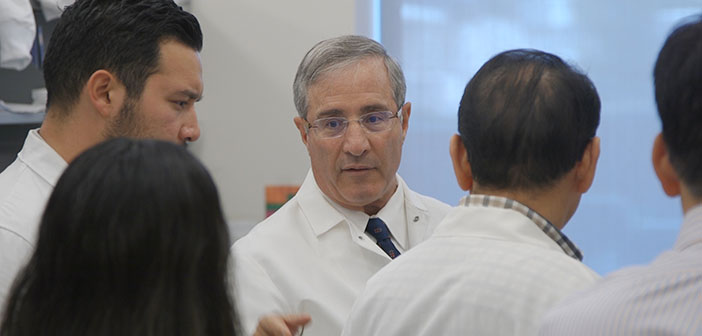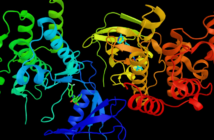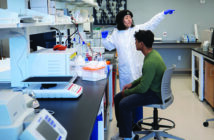Meeting of the minds…
This issue of Medicine@Brown highlights the Center for Translational Neuroscience. The center is one of the horizontally integrated research teams within the Brown Institute for Translational Science. It brings together physician-scientists and researchers to focus on diseases of the brain, such as Alzheimer’s, amyotrophic lateral sclerosis, and epilepsy. We’ve been successful in recruiting new researchers to join our well-established faculty to create a center focused on finding treatments and cures for some of the most devastating diseases of the brain. I think you’ll enjoy reading about the team’s innovative approaches and ideas for moving the field forward.
Alzheimer’s disease research, both clinical and basic science, is a major focus for Brown. In December, a multidisciplinary group of researchers received $750,000 from the Alzheimer’s Association to launch a phase-one clinical trial of a drug to potentially treat Alzheimer’s disease. The team includes John Sedivy, PhD, a professor in the Department of Molecular Biology, Cellular Biology, and Biochemistry; Stephen Salloway, MD, of Psychiatry and Human Behavior; Rami Kantor, MD, of the Department of Medicine’s Division of Infectious Diseases; and Constantine Gatsonis, PhD, from the Department of Biostatistics in the Brown School of Public Health. The drug they will be testing is from a class of therapeutics typically used to treat HIV and AIDS. Research by Dr. Sedivy, published in 2019 in Nature, showed that the drug can potentially reduce a type of age-related cellular inflammation that has been associated with Alzheimer’s. This new clinical trial is an initial step toward determining if the drug may benefit people with the disease.
This study exemplifies the work we are doing in the Brown Institute for Translational Science and in the Division of Biology and Medicine. This integrated team of basic and pathogenesis-focused scientists and master clinicians collaborating with experts from the School of Public Health is working together, attracting outside funding and testing the application of Dr. Sedivy’s discovery in a real-world setting. If this study is successful it will have an amazing impact at Brown and the world and will change our understanding of the mechanisms that underlie this devastating disease. This is exactly the type of research we do and want to do more of through BITS.
— Jack A. Elias, MD
Senior Vice President for Health Affairs
Dean of Medicine and Biological Sciences




